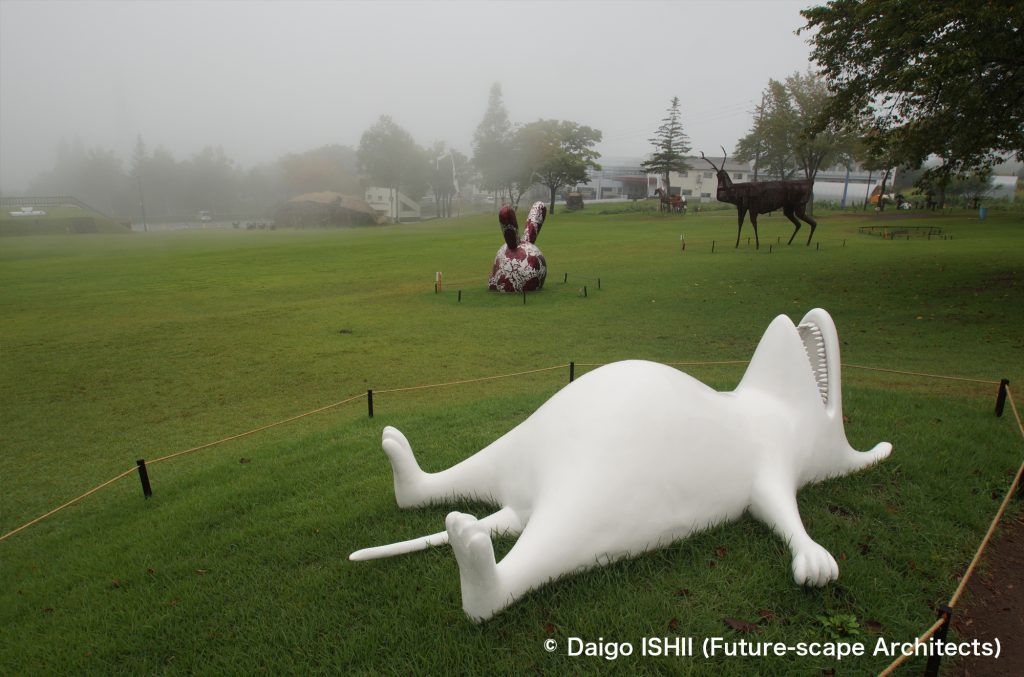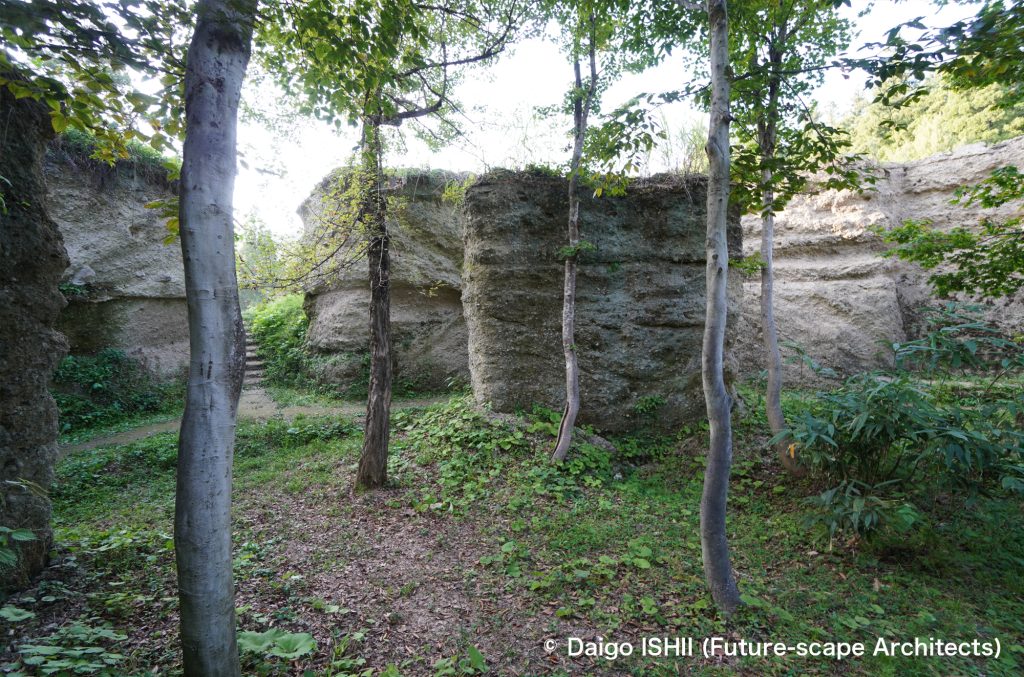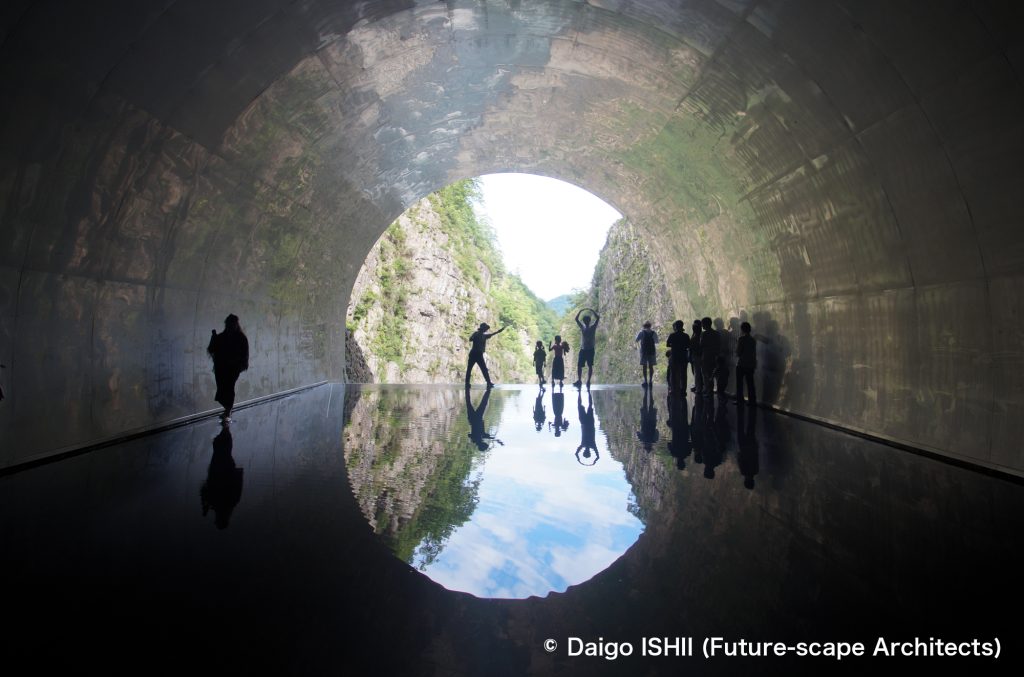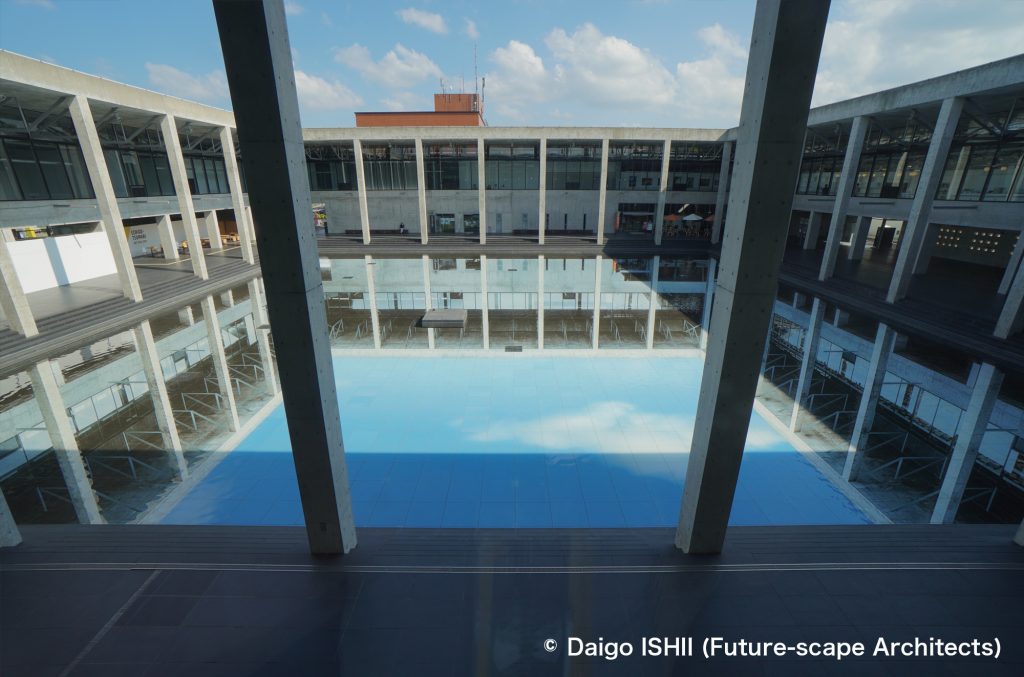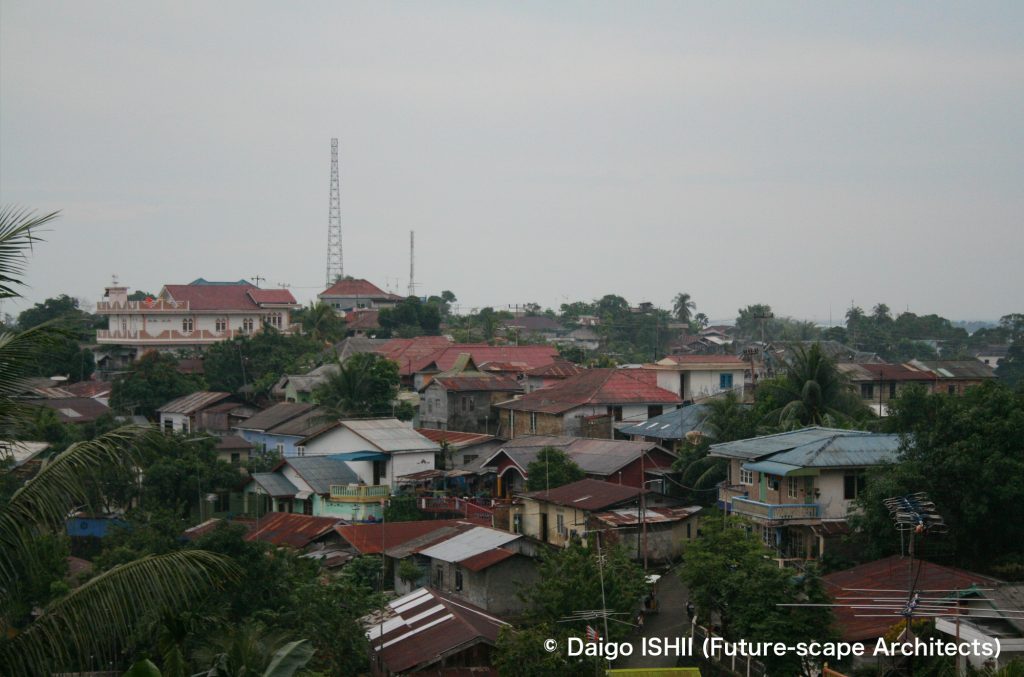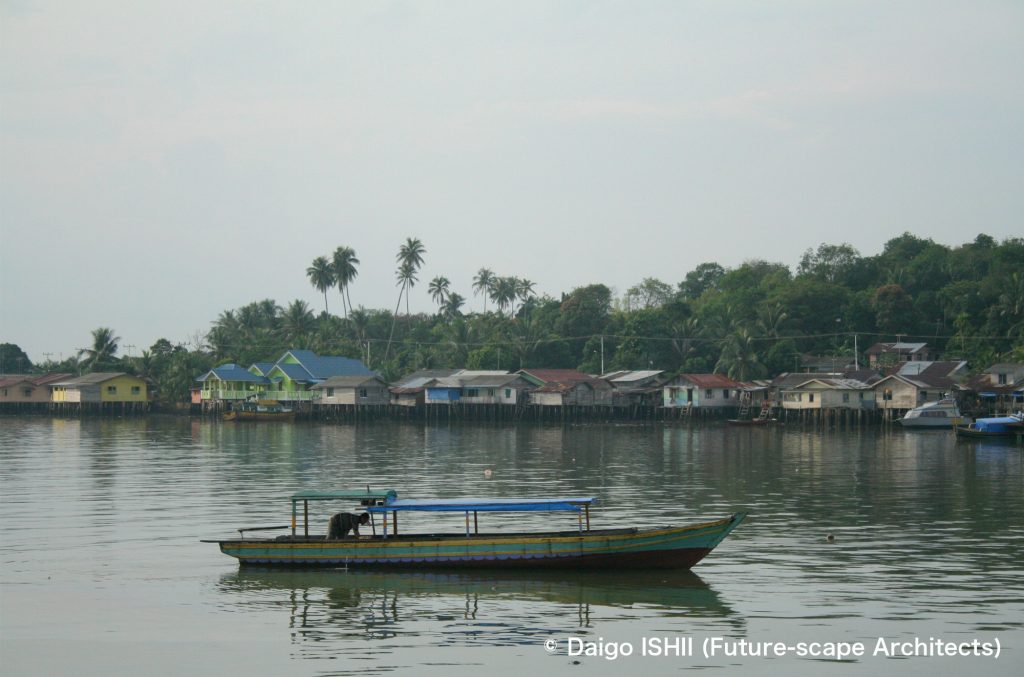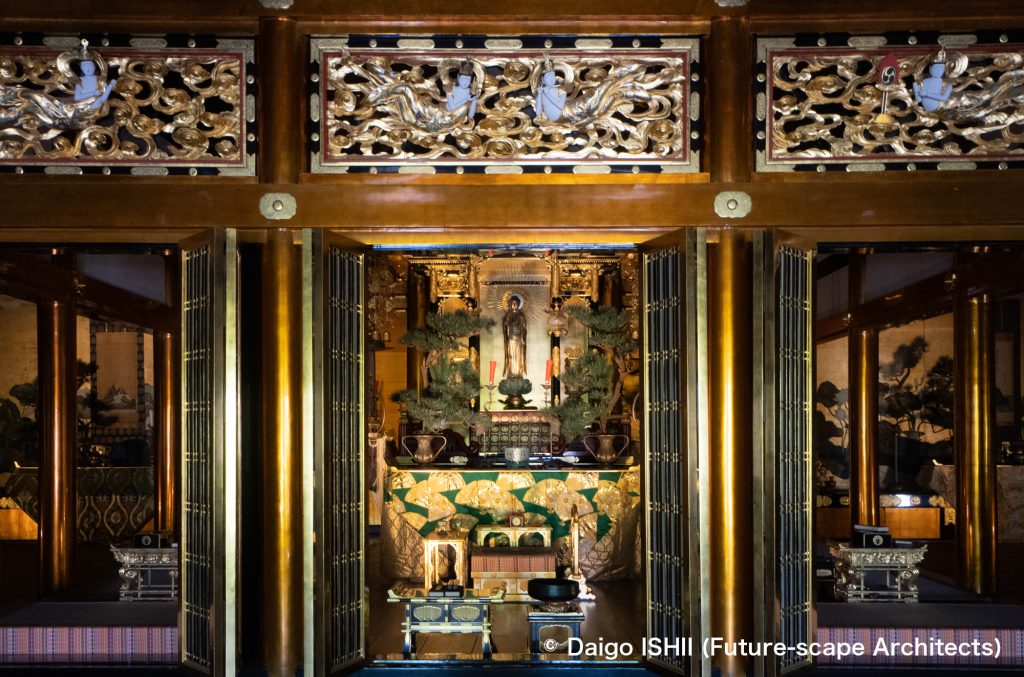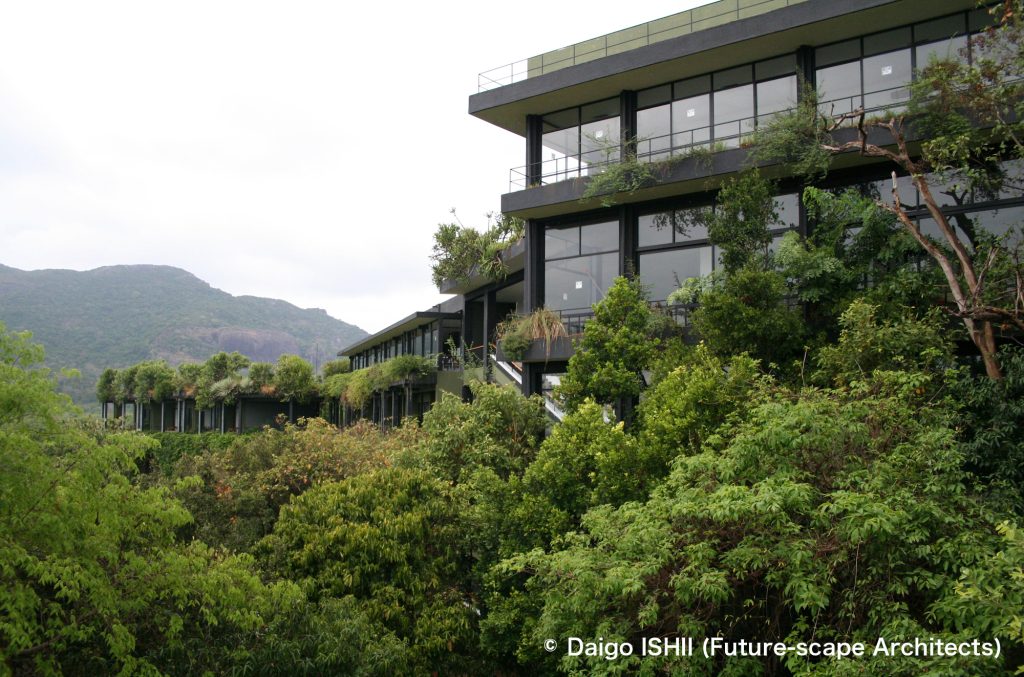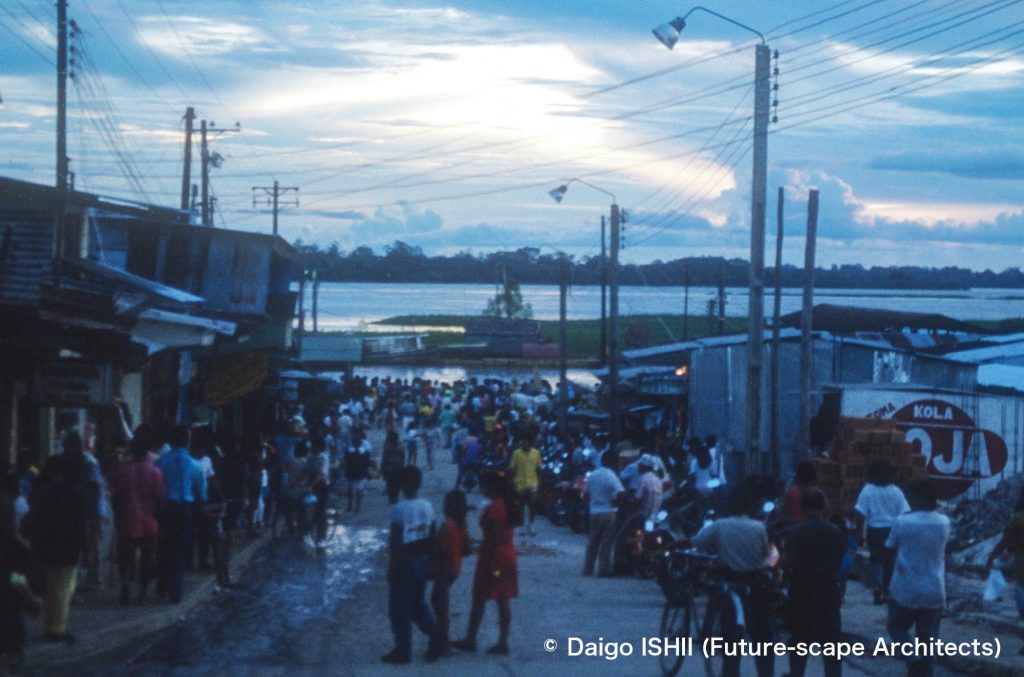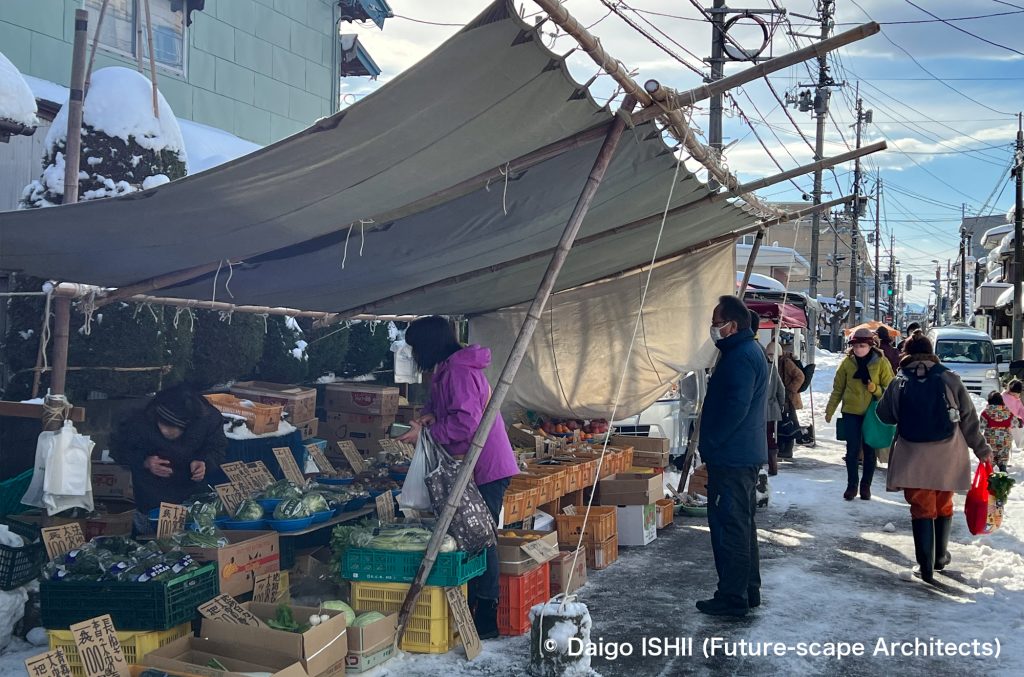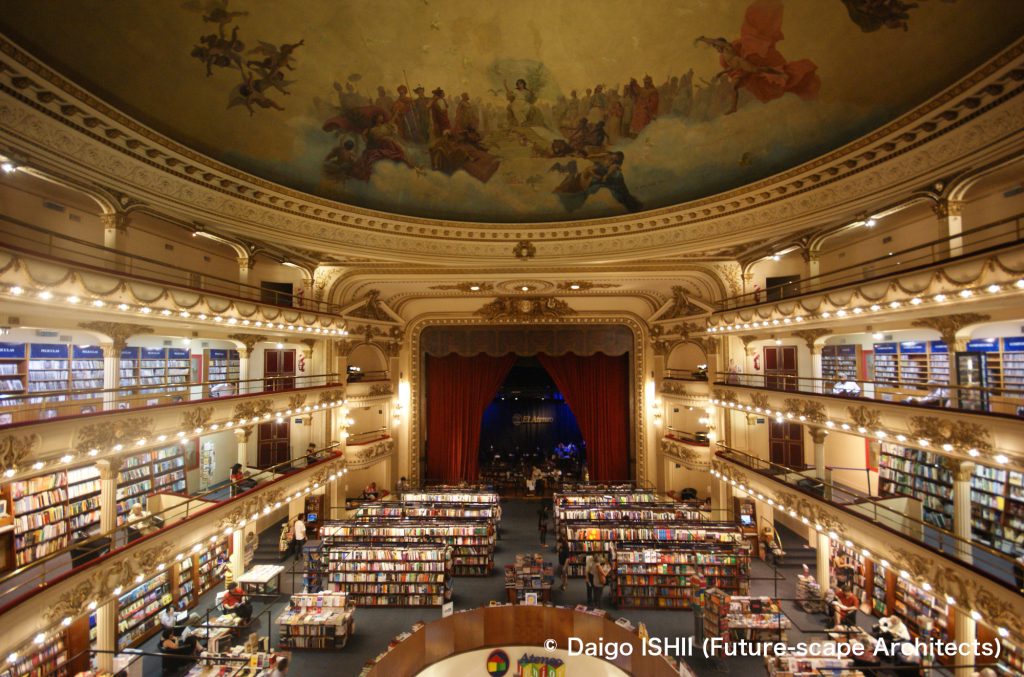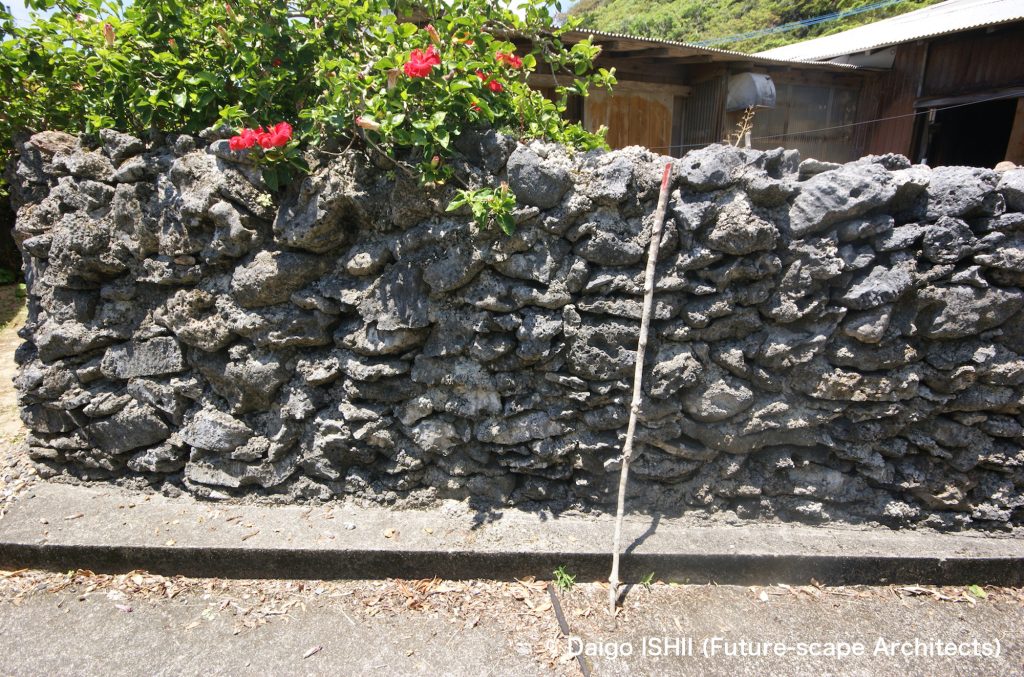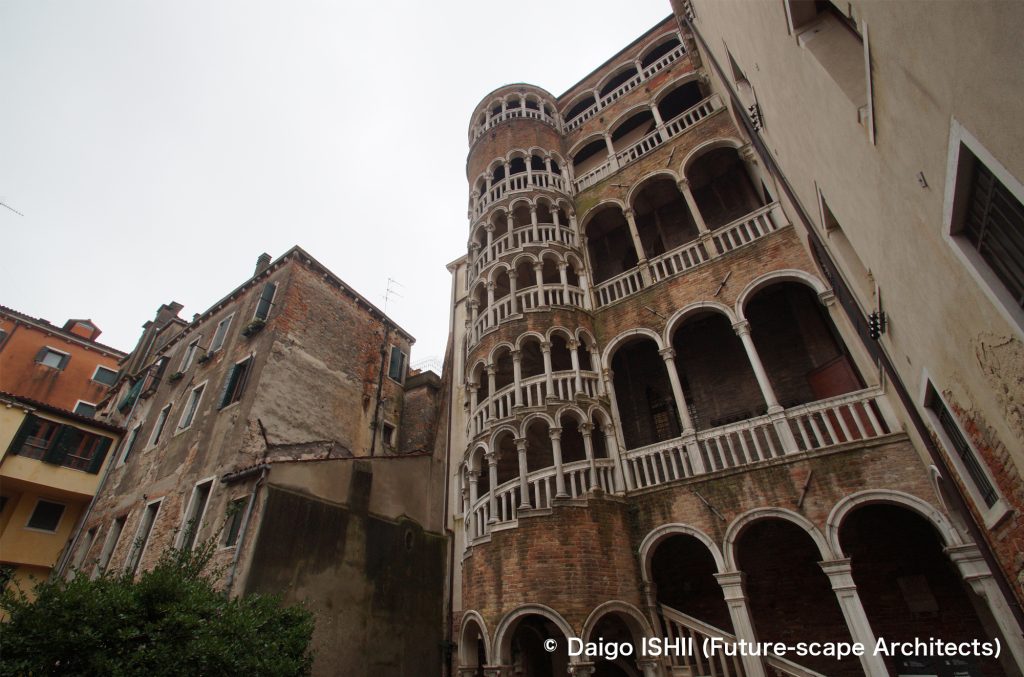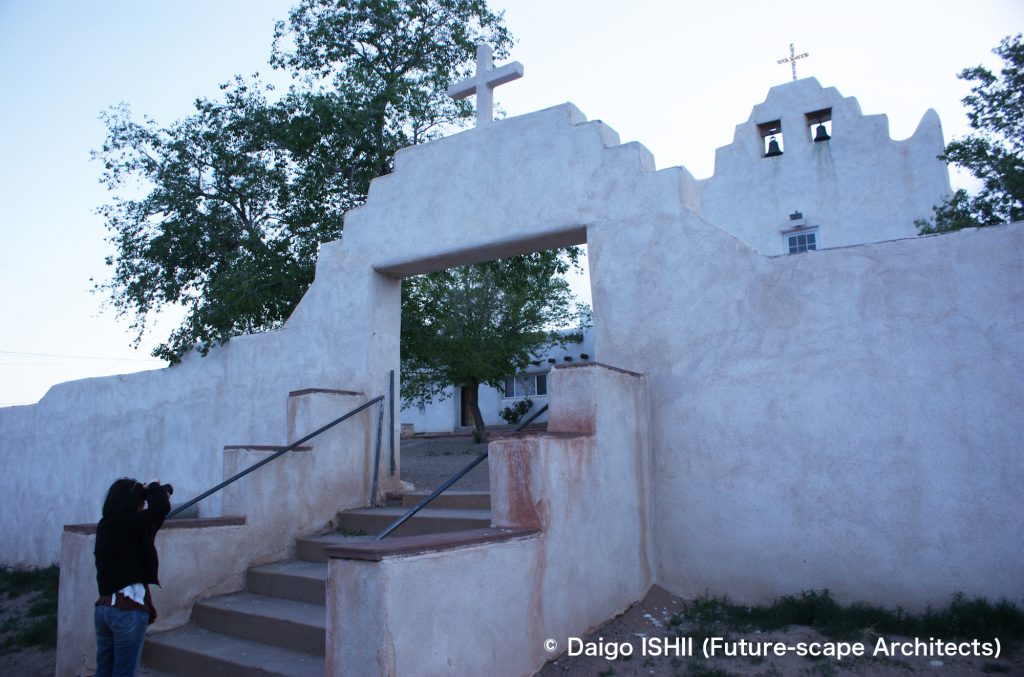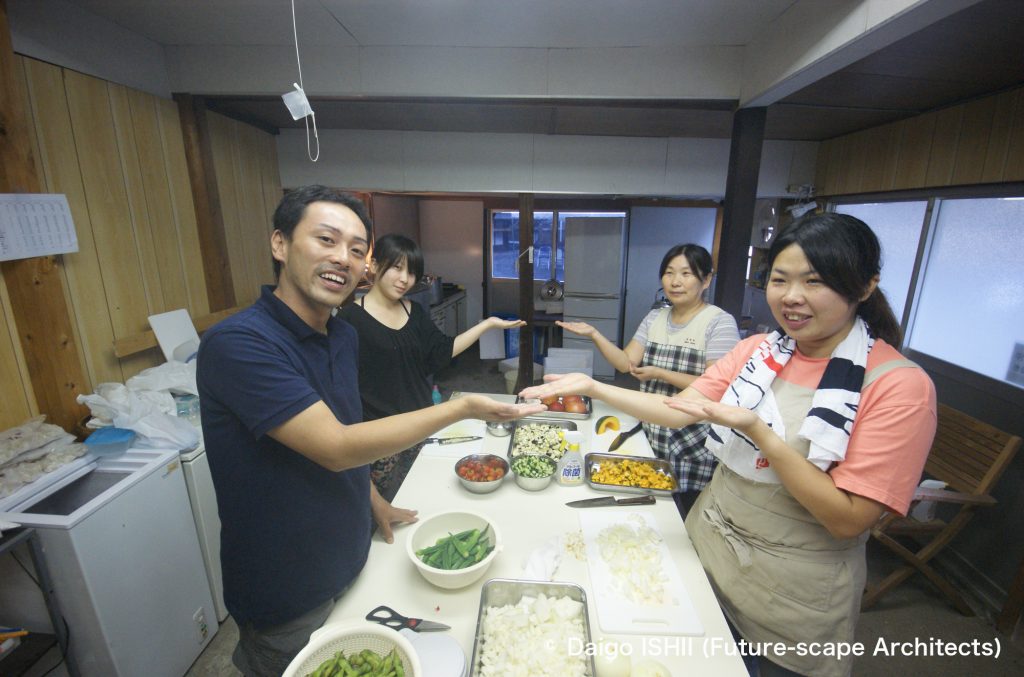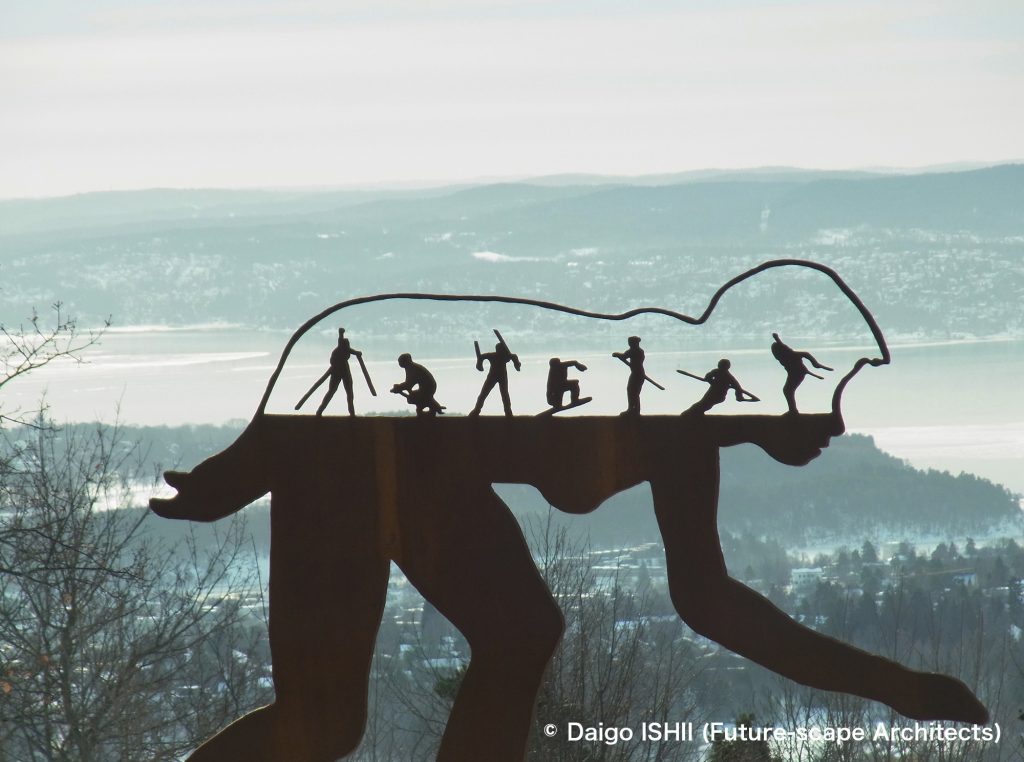Pulau Bintan (Bintan Island) is a treasure trove of floating villages on the water. It has no many floating villages all over the island but a variety of floating villages.
If you are looking for a typical floating village in Southeast Asia, Kawal, a village of Indonesian residents, is recommended.
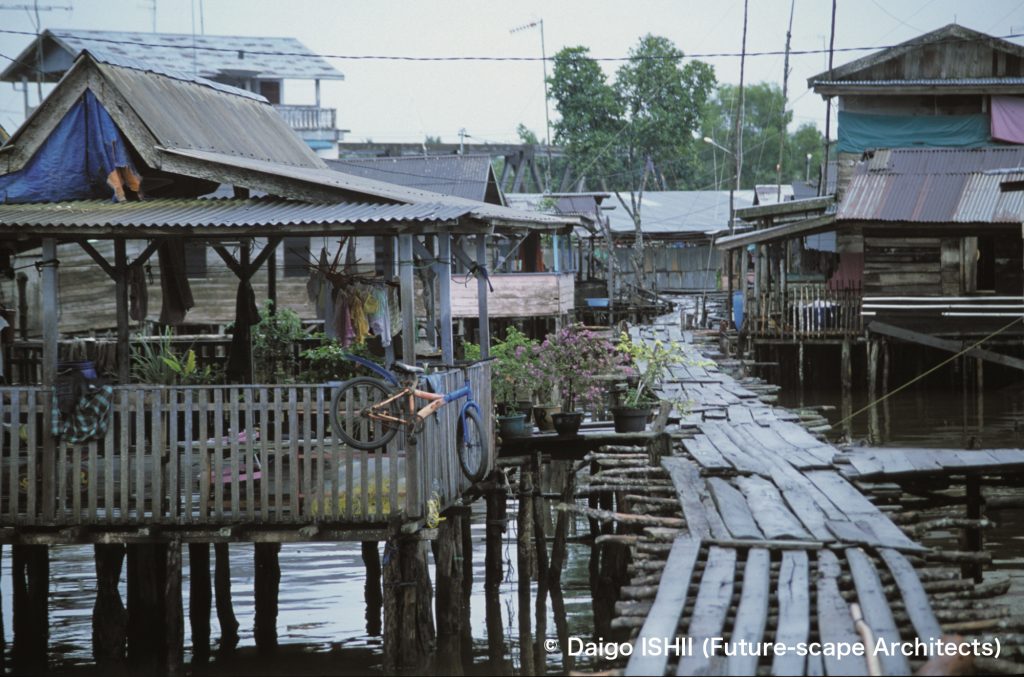
The first point to see is the long wooden pier.
Nowadays, a road bridge separated the middle of the village, but the village was long, continuous and stretched from the back of the inlet to the river mouth. Two piers extended toward the sea across the river, and houses attached to them.
Just like traditional piers, the residents drove piles into the bottom of the water, spanned beams, and roughly nailed uneven planks onto the piles.
The wooden floor of the pier was wet and slippery by the strong squall at the time, and it was dotted with traps such as rotten and fallen nails and loose nails that sprung up. The real pleasure of exploring a village like this is walking through it with fear. In contrast with such a traveler, children ran by hopping.
The houses had gabled form like a model answer to a floating village, and the exterior wall was finished with clapboard. Most houses were not painted, and their wet and rain-stained appearance matched the color of the mangrove trunks and the earth-colored water surface, blending in with the environment. A covered terrace was installed between the house and the pier. In a village lacking in color, the potted flowers on the terrace in front of the entrance stood out vividly.
The form of village was not special but had been established over a long period in this region and rainy climate. The houses were built with easily available materials, simplified design, and easiness to repair.
This village of Indonesian residents had a casual atmosphere where travelers could come and go without any censure. So even when I walked around, they did not care or show any discomfort.
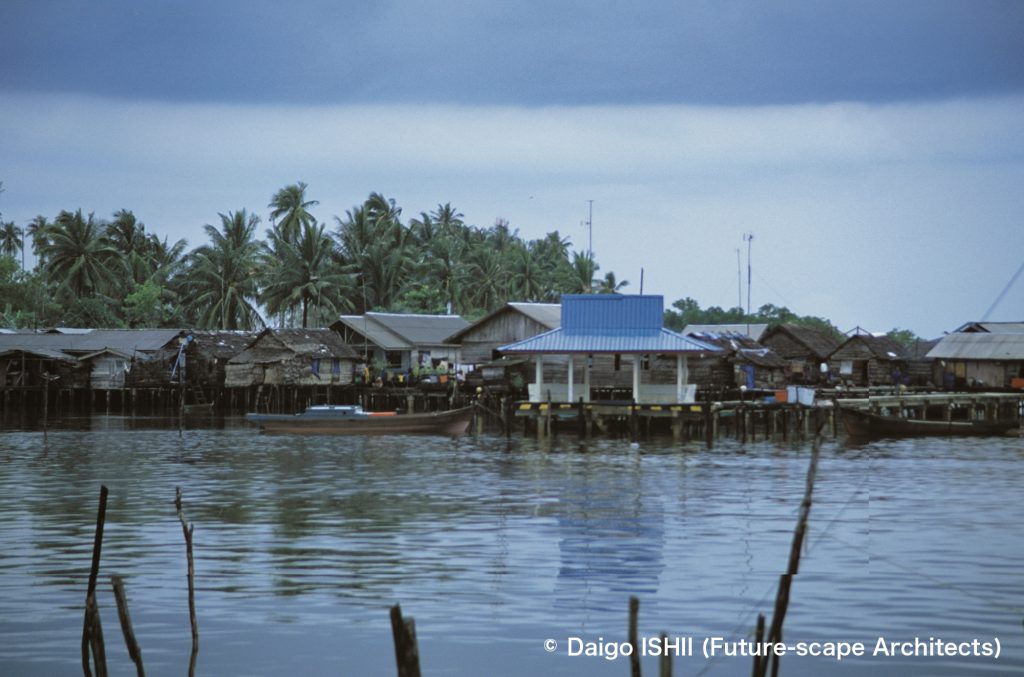
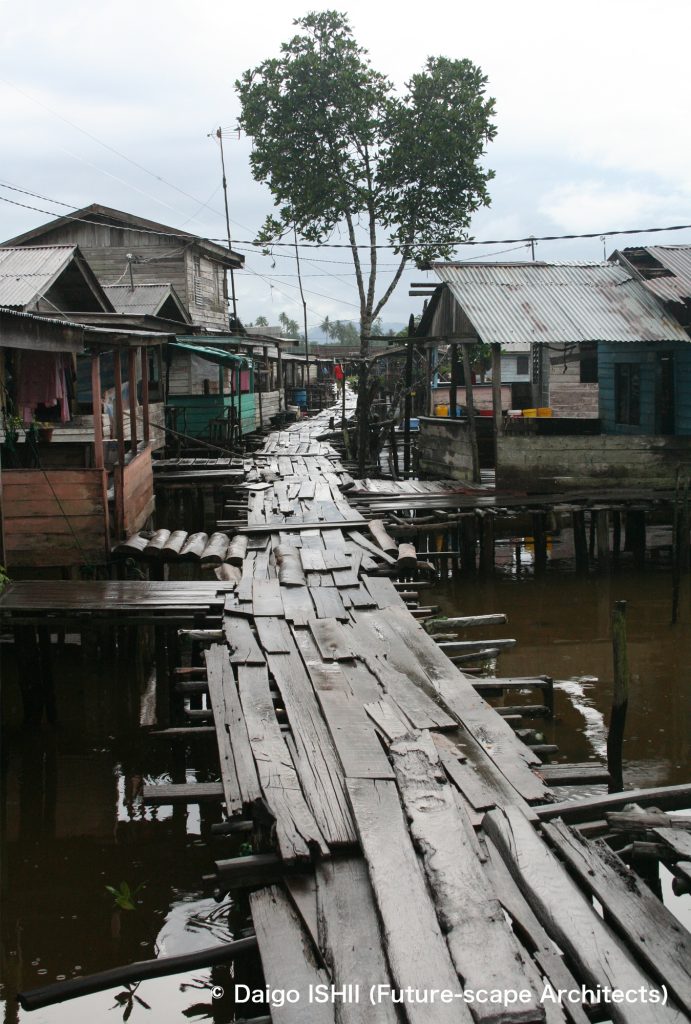
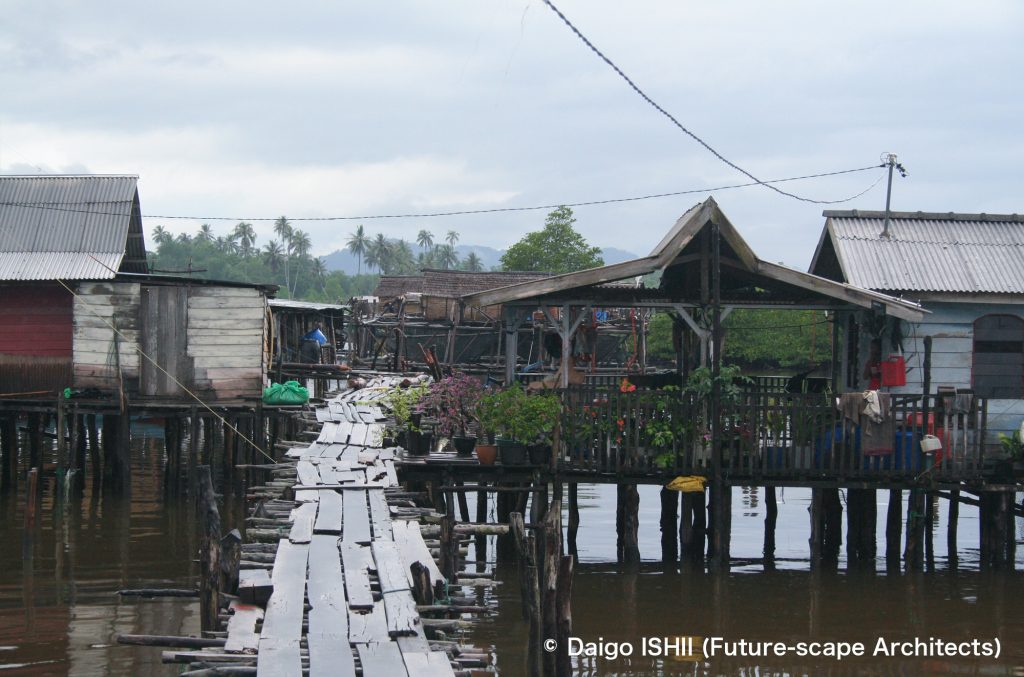
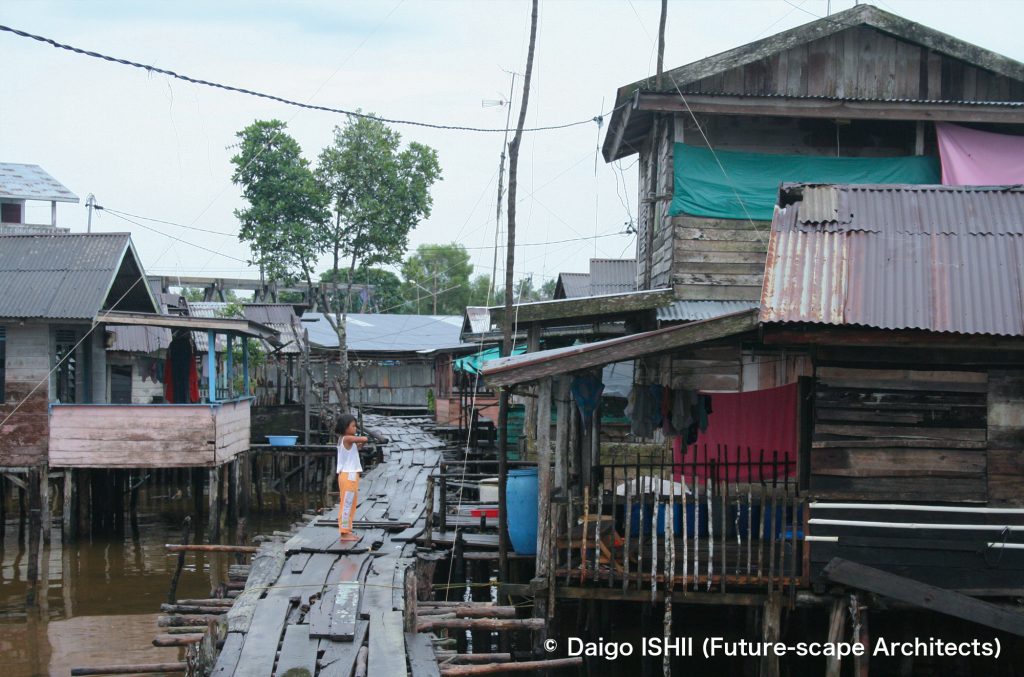
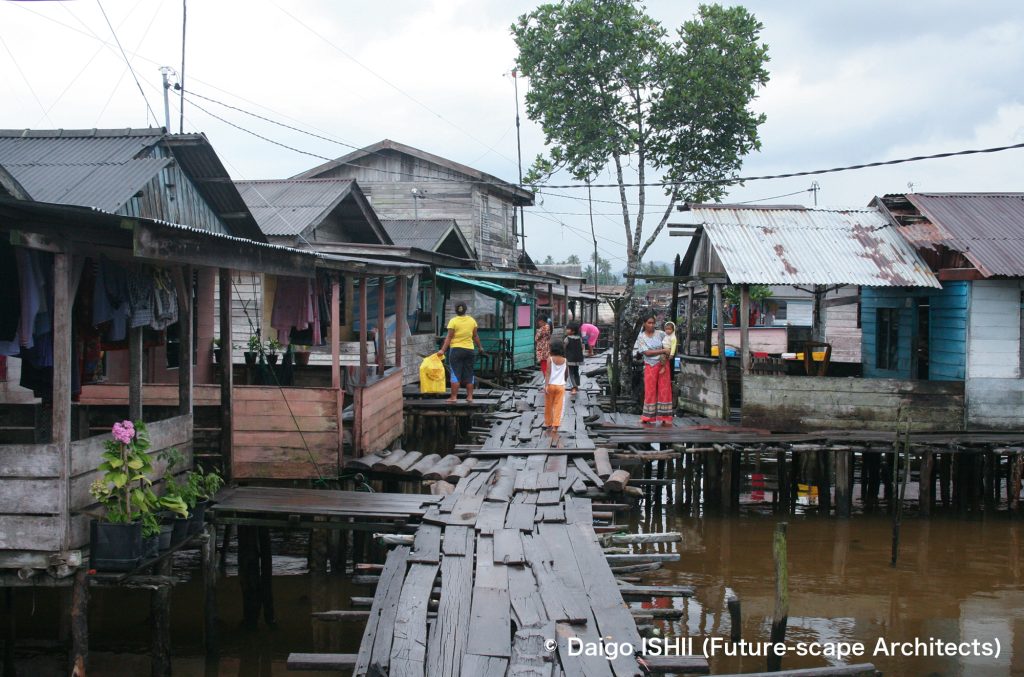
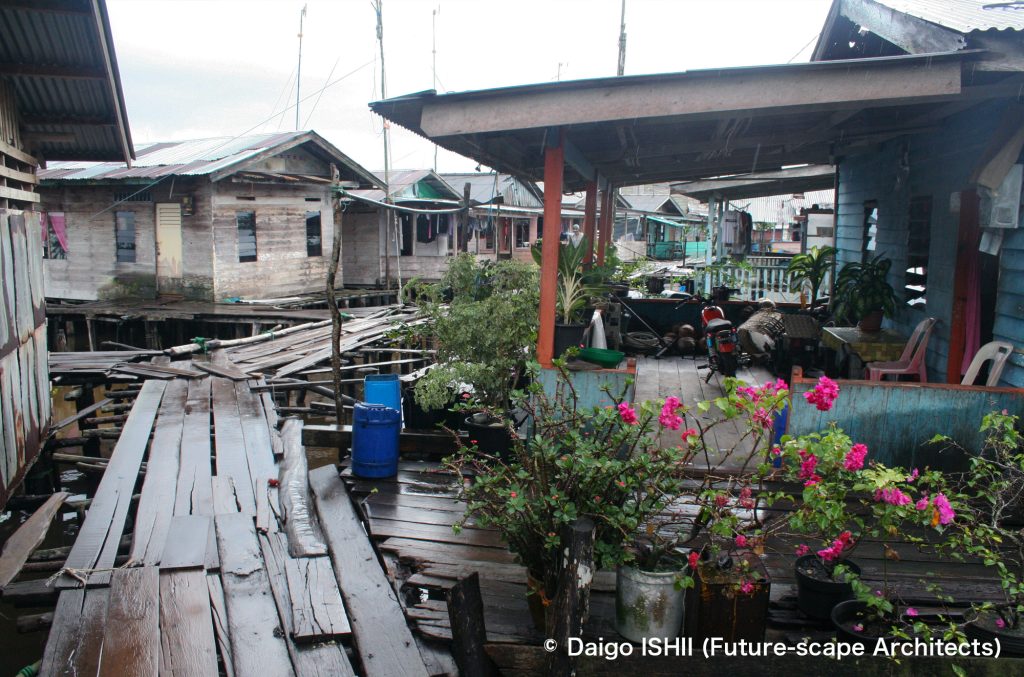
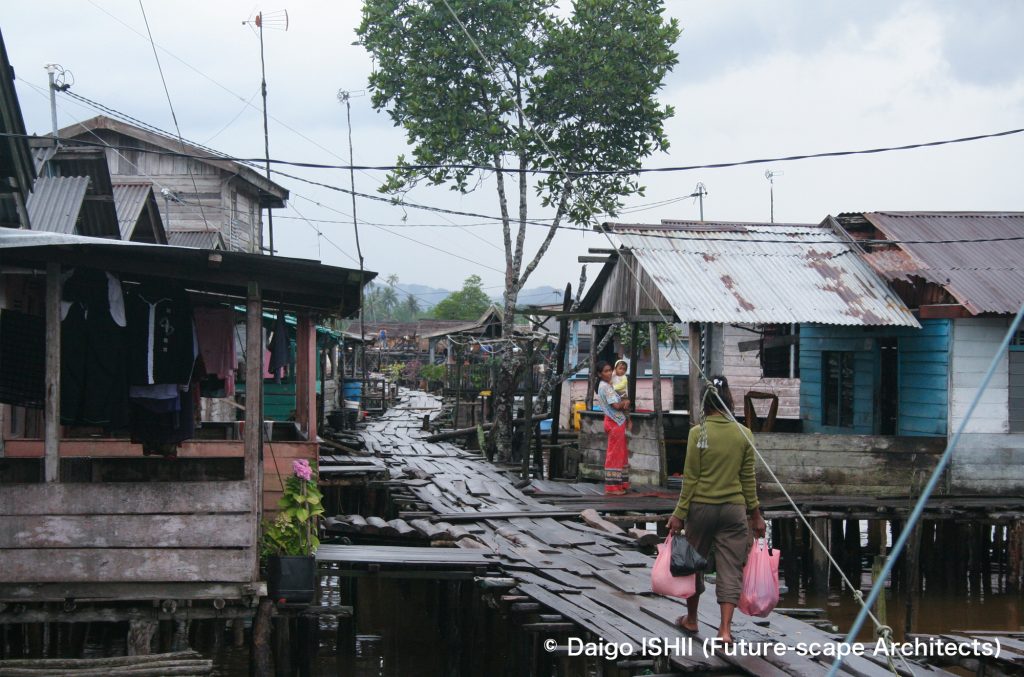
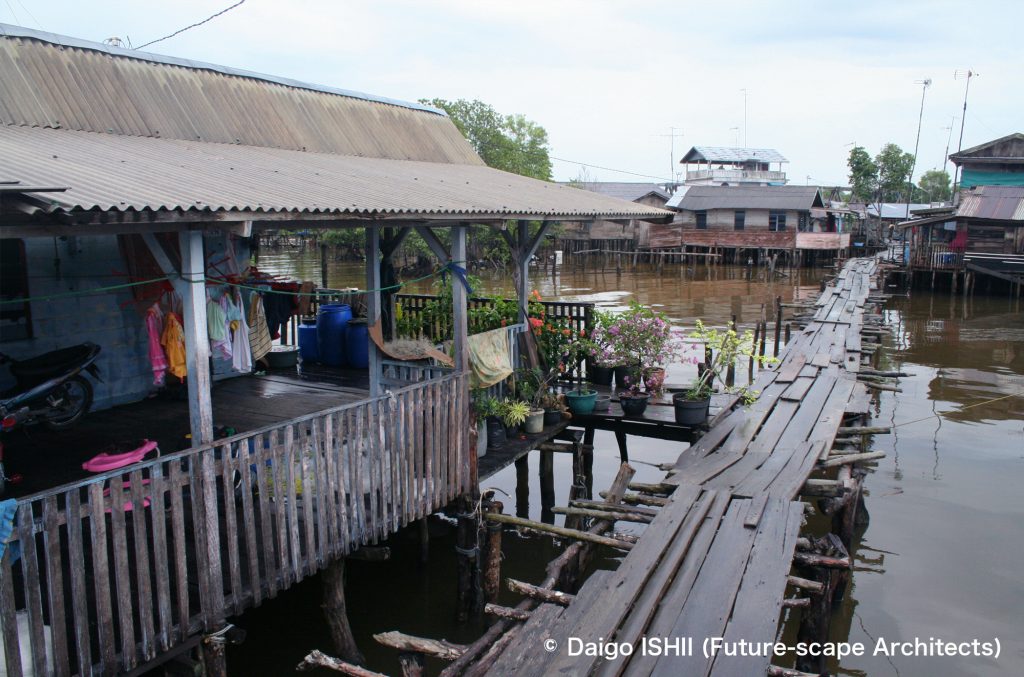
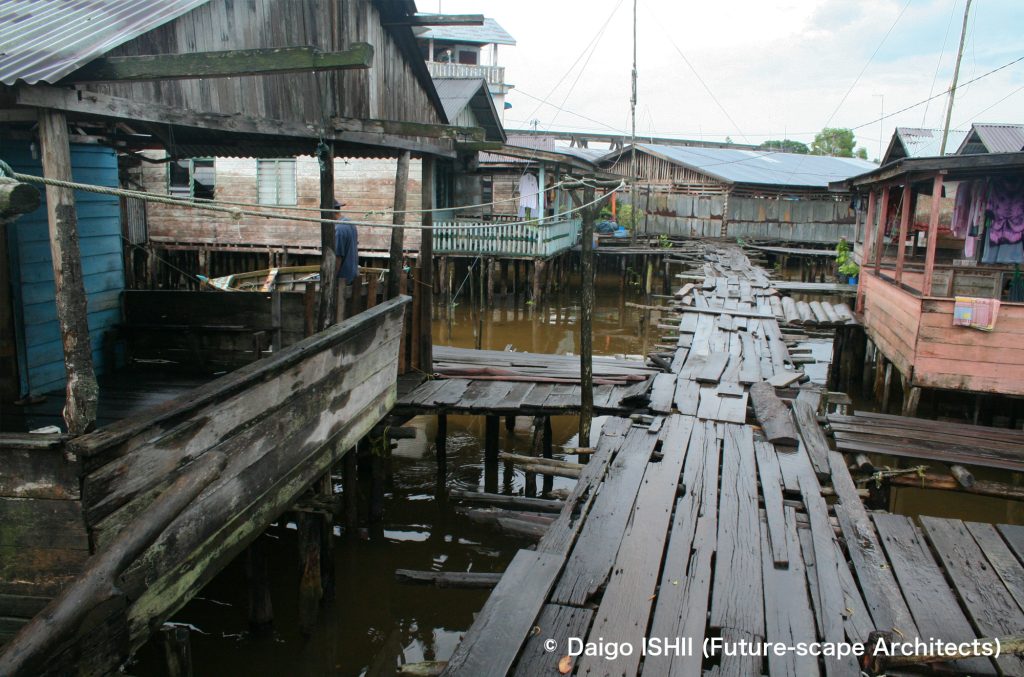
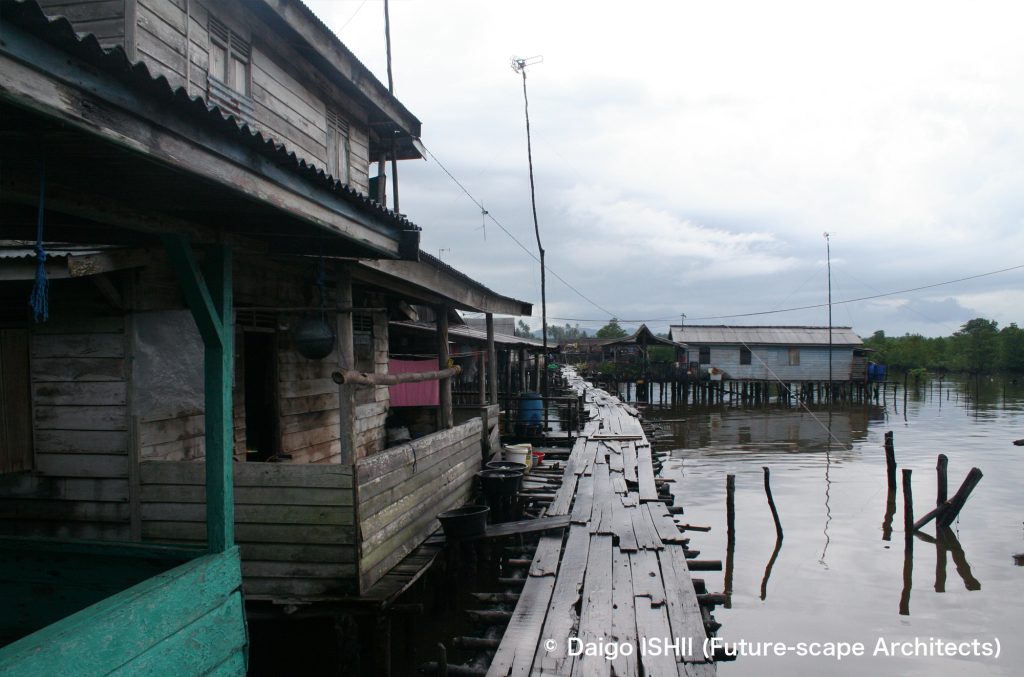
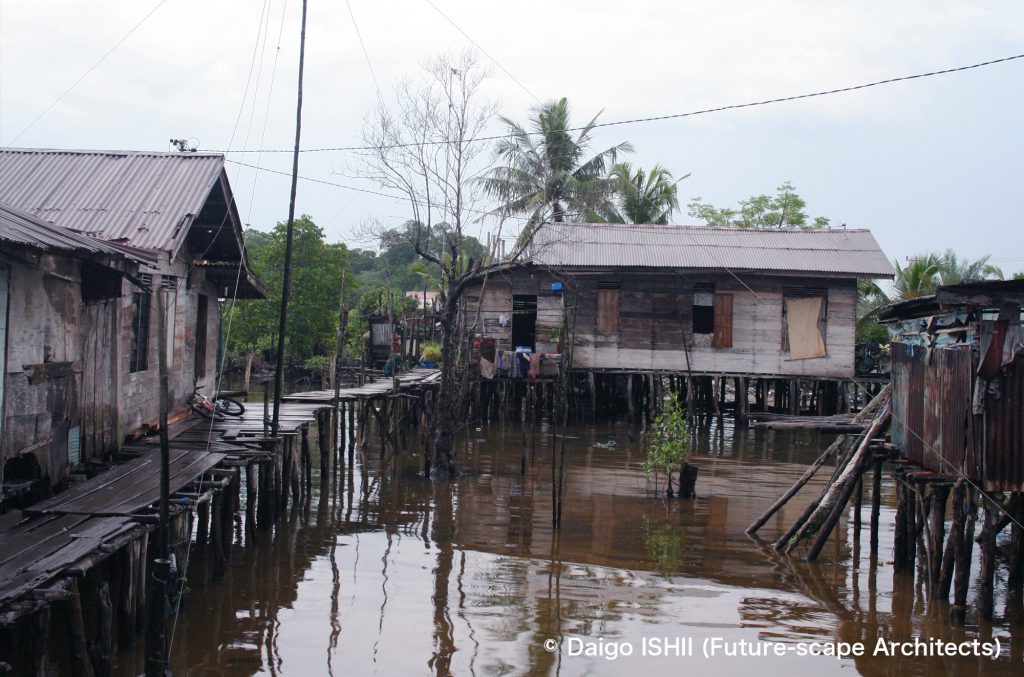
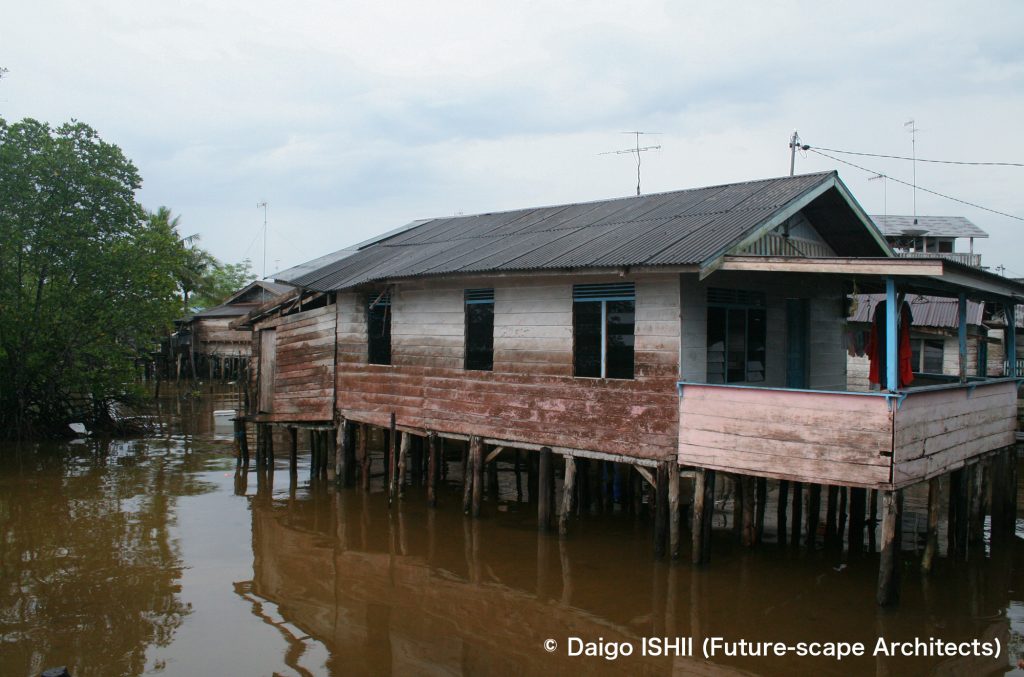
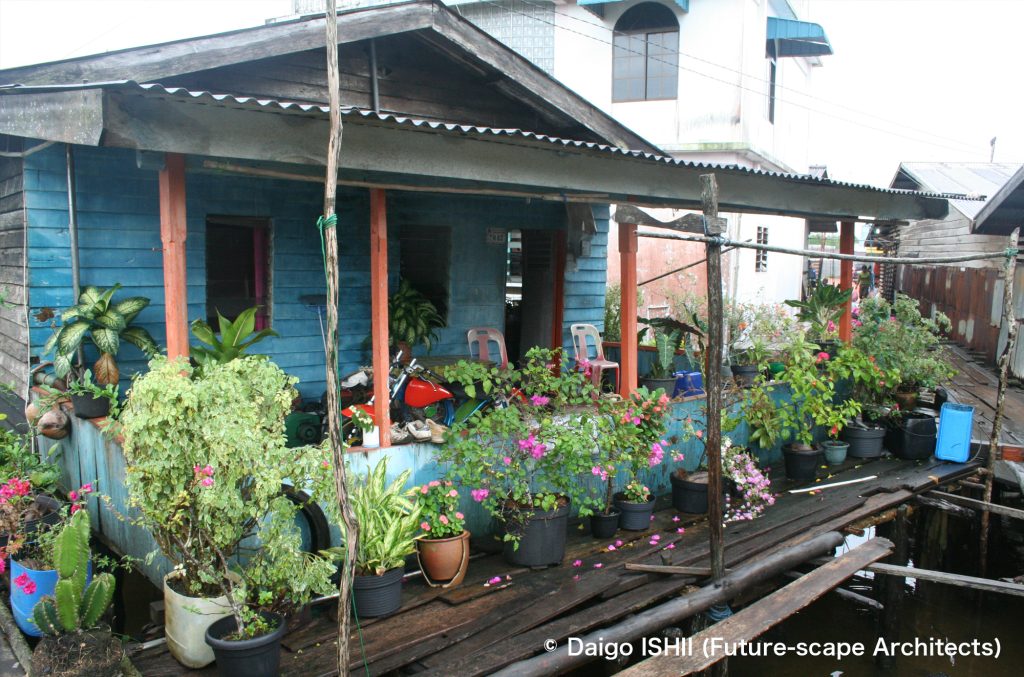
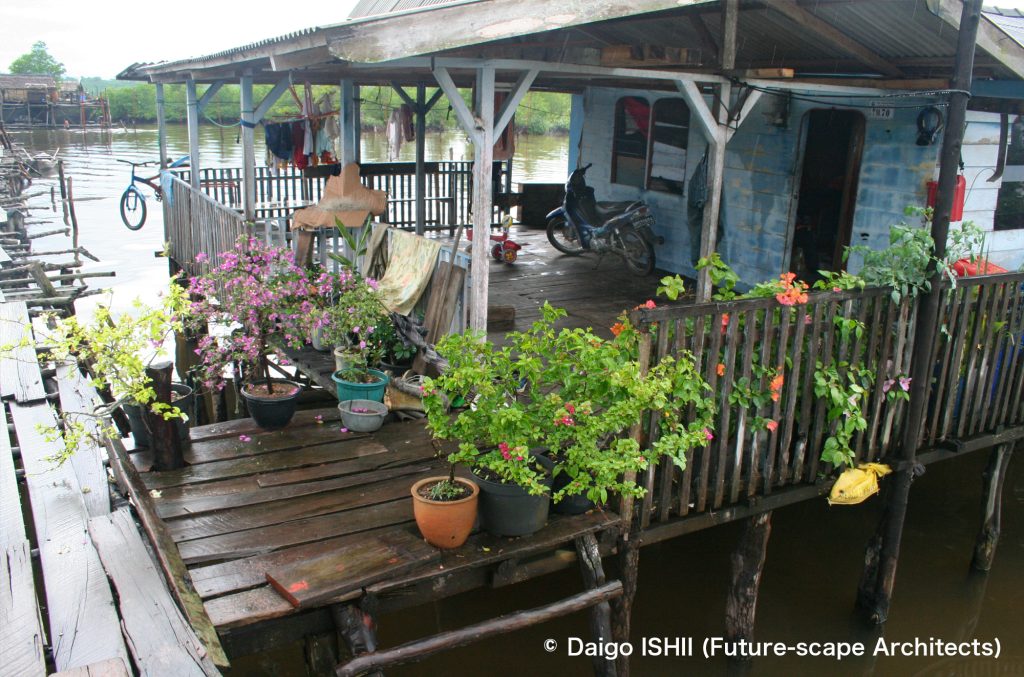
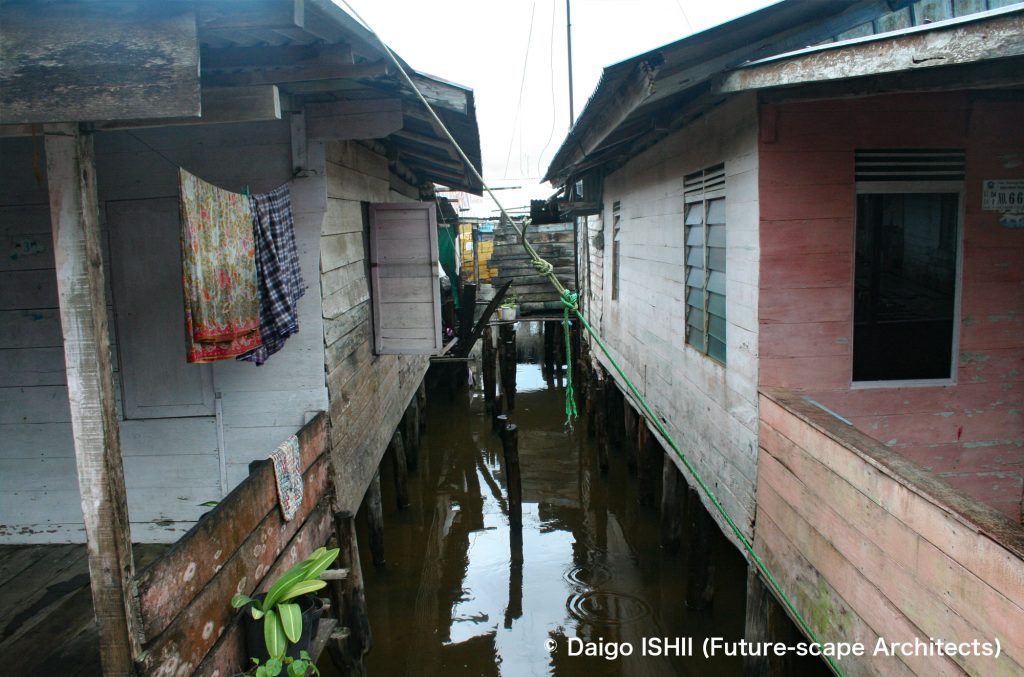
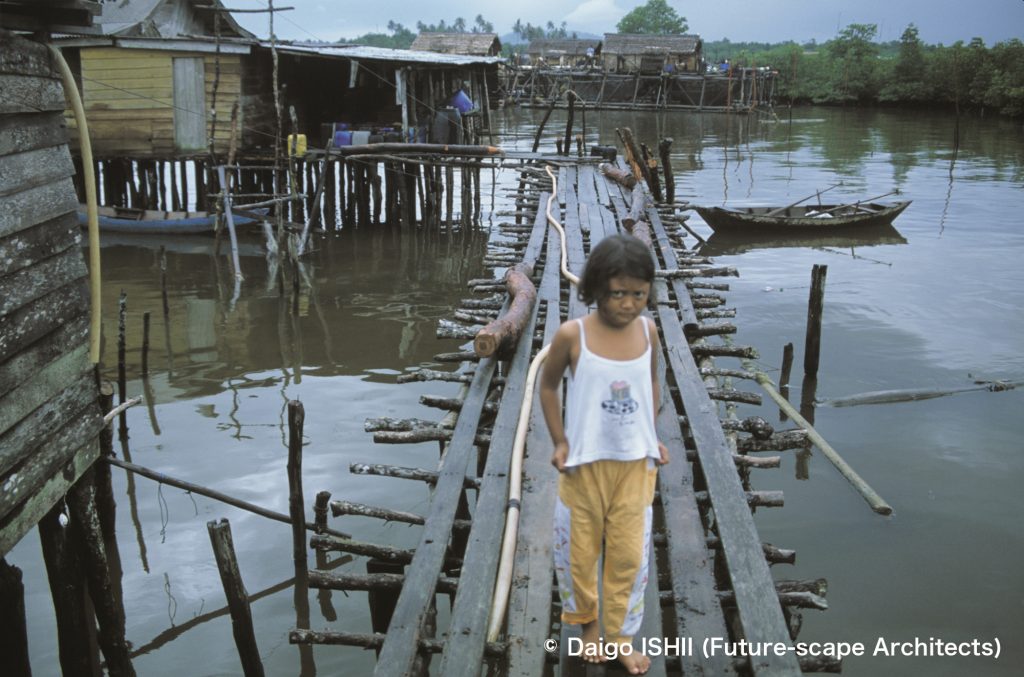
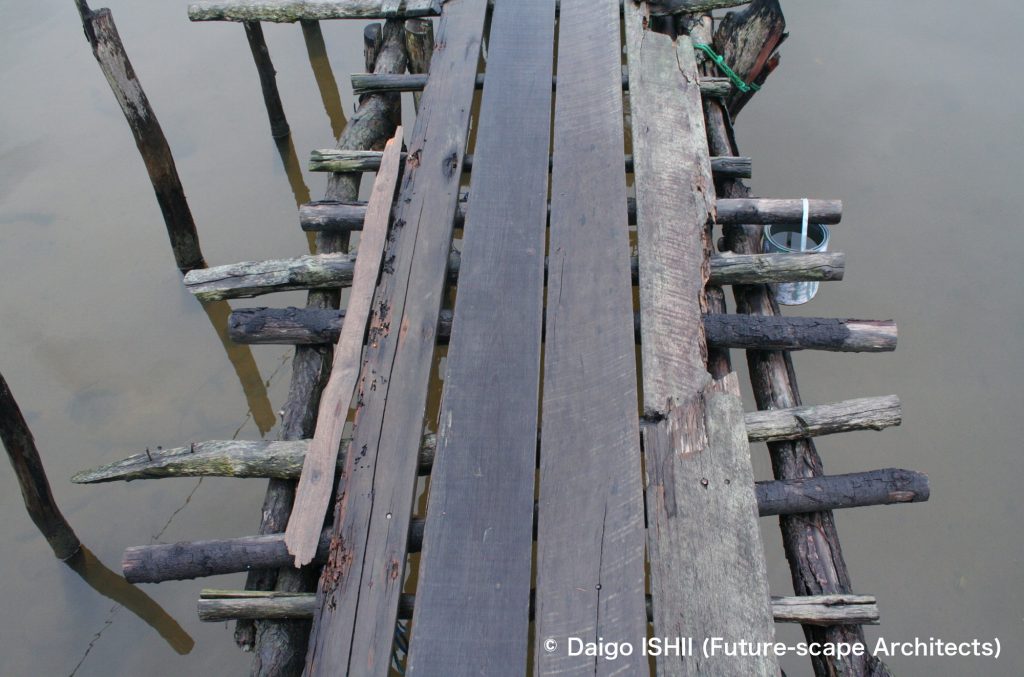
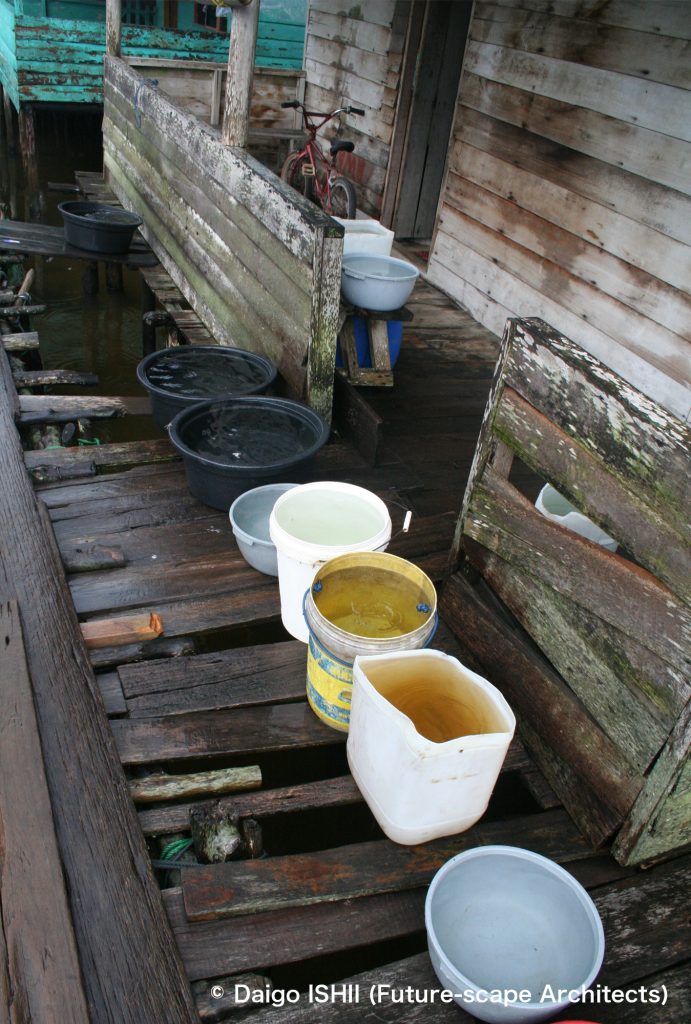
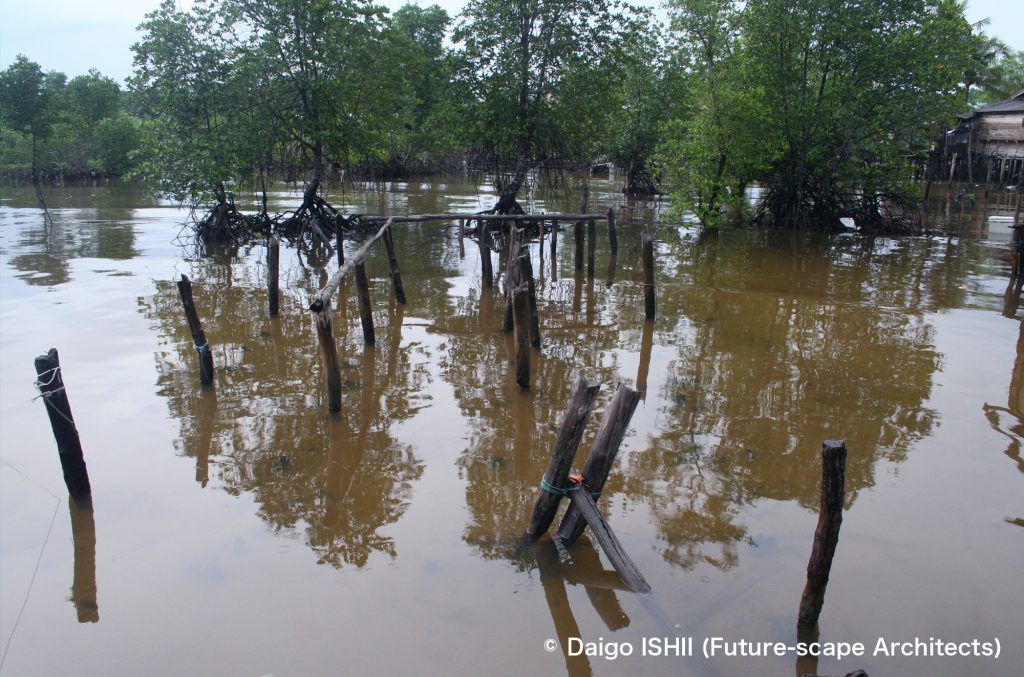
Click here for your impressions
reference
Wikipedia
Please do not use or upload our photos without permission.
